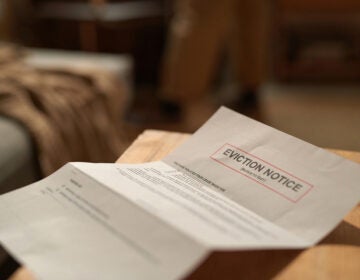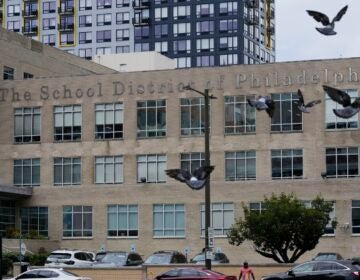Mulling racism’s history and modern-day effects in Germantown
What is race? What is whiteness? What constitutes being “black”? Where did the term “colored” come from?
Is race even relevant anymore, and what does it mean to live in a “post-racial society”?
All of these questions were discussed during Ewuare Osayande’s “Race and Anti-Racist Resistance” class held Saturday at the Joseph E. Coleman Northwest Regional Library in Germantown.
Osayande — a poet, activist and adjunct professor of African-American Studies at Rutgers University-Camden — created the four-class series to focus on the history, legacy and reality of race and racism in the United States.
The syllabus
He started by discussing how the idea of race began in the 1600s by European elites seeking “to divide humanity for purpose of control and theft of Native American land and African labor and to justify the same.”
From there, he went through the 18th, 19th, and 20th centuries to the present day, relaying historical events and legal proceedings throughout American history that led to the concept of “white privilege.” Osayande also cited present-day examples of internalized oppression.
“I was conscious of wanting the class to be in a predominantly African-American community,” he explained, “because as much as black folks and other people of color are aware of race, we rarely have the chance to critically examine it.”
Several attendees said they thought the venue was well selected.
Kody Hersh, a white Germantown resident, has been reading and thinking about racism and anti-racism.
“To engage in these issues in the community that I live, that kind of access to conversation in a local neighborhood and integrated space is really exciting,” he said.
Personal connections
Class attendees came from all racial backgrounds, and many had personal stories with which they were to able to connect to the conversation of how racism became part of American history.
Osayande went through the various federal, state and local laws and acts passed in the 19th century that made whiteness empowered; they included acts for Indian removal and legal cases that had black families in Philadelphia under constant threat of enslavement.
Nadine Patterson, a local African-American filmmaker, said she has family ancestors who were directly affected by the laws of the times.
She cited the Fugitive Slave Act which, passed in 1850, made it legal for people to capture and/or kidnap any person of African descent, free or enslaved, and take them to the south as a slave.
“We’ve traced my ancestors, including a woman and her two children who were kidnapped off the streets of Philadelphia, we believe in the early 1800s, and enslaved,” Patterson said. “So they were free people in Philadelphia, taken to Georgia, and enslaved.”
‘I saw the immediate switch’
Sheila Quarles, who now self-identifies racially as mixed but grew up identifying as African-American, wanted answers to racial questions that she said she faces on a daily basis.
“Every day, I experience different inequalities and I’ve been looking for the answer as to why,” she said. “I’m educated. I’m experienced. Just yesterday, I went to talk to someone about possible staff trainings that I had originally talked to on the phone. When I showed up in person, I had a totally different experience.
“I recognized that because of my voice and my education, the person thought I was white over the phone,” Quarles continued. “I saw the immediate switch from a welcoming response and a possibility to train the staff at their center and other centers to addressing the impoverished population they serve. So, I’m constantly looking for why this is happening.”
Quarles also touched upon how her lighter features made her more acceptable in some of her previous jobs in media, and how that did not translate for her counterparts with darker skin.
Toward a critical analysis: The next steps
Osayande ended the class with examples of how anti-racist activists and educators are leading dialogue and action in 2012.
What does he think future lessons about the history of race and racism in the United States will hold?
“Most people really want to get past this question of race,” he said. “There’s an urgency, a tension. Yet we lack the will, we lack the awareness and, as a result, we lack the ability. And so, taking the same steps, the same actions and risks that people in history did, that is alive here in this city, that’s what this class was seeking to do.”
WHYY is your source for fact-based, in-depth journalism and information. As a nonprofit organization, we rely on financial support from readers like you. Please give today.









